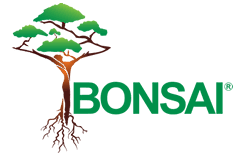We moved three hours north to Iowa (from Missouri). While three hours doesn’t seem like far, it’s quite a dramatic change in terms of weather! But the biggest difference isn’t the weather itself, which everyone warned us about, but rather how people react to it.
In Missouri, at least where I was, the cold snowy days were more of an interference with life – something to endure until it passed so we could get back to life as we wanted it. But here in Iowa, with a lot more snow and much colder temperatures (as in a rather shocking -18 degrees one morning), people seem to not only accept it, but also embrace it. As the locals say, “This is Iowa, you know.”
It is not uncommon to see people partake in activities like cycling or jogging when it is 20 degrees. And for many, they embrace and enjoy the cold with ice fishing, snowmobiling, snow shoeing, and even crazy activities like ham put – like shot put but with a frozen ham! I’ve personally gotten more into birding and scenic photography, including eagle watching and seeking out owls in the beauty of the snow that sometimes sparkles like diamonds.
What struck me about this approach to winter is how it aligns with the way many people approach their work or life. Yes, I acknowledge and have experienced some seasons in life that we just need to endure and get through until they pass. But during some of those hard times, a shift in perspective can help us embrace the good we find in it, even if it’s just learning more about ourselves and our own strength as we emerge from a struggle.
So, my question to you is this: Which types of questions tend to pop in your mind most often when facing a challenging time?
Do you think things like…
- How soon will this (fill in the blank) be over so I can get back to the good stuff or finally be caught up?
- How can we just maintain the status quo and mire through this?
- This too shall pass, right?
Or do you think things like this instead…
- How can I use this challenge to draw closer to others? Who might be able to help that I can reach out to?
- Who else can I help develop as we move through this?
- How might I lean into this struggle so I can learn more versus spending my energy fighting it?
- Even though this isn’t my preference for how things are moving forward, how can I make the most of it? What can I learn?
- How can I emerge from this in a better place than where I started?
This isn’t just sugar-coating the issue with how we talk about it or telling ourselves we can only think positively about it. It’s about shifting actions. What specific steps will you take to make the most of where you have been placed?
I can think of a few personal examples to share in how we’ve faced new challenges. When COVID first hit and people felt so isolated, we started a neighborhood ministry. After our move to Iowa, our well pump died in our rental house, and that meant no water for a while. We leaned in to build relationships with neighbors and ask for help. With some major health challenges in late December, we leaned in to strengthen our marriage, our faith, and our relationships with those who rallied around us.
I can think of a professional example, too. With COVID, our brand could have become a weakness because we focus on relationships and connections with those we coach. Pre-2020, I was pretty negative about online teaching, training, etc. Instead of staying in that space of negativity, we doubled down on learning how to work effectively via Zoom and how to really engage virtually. We tried new ideas (most worked well), and we got outside our comfort zone. We were blessed to see our business grow significantly last year. We had clients share that they saw our extra effort and valued how we were able to maintain the personal touch in what seemed like an impersonal medium.
None of us really have any idea about what’s ahead. But we do have a choice – embrace it or endure it. What will you choose?





 Britta burrus design.
Britta burrus design.